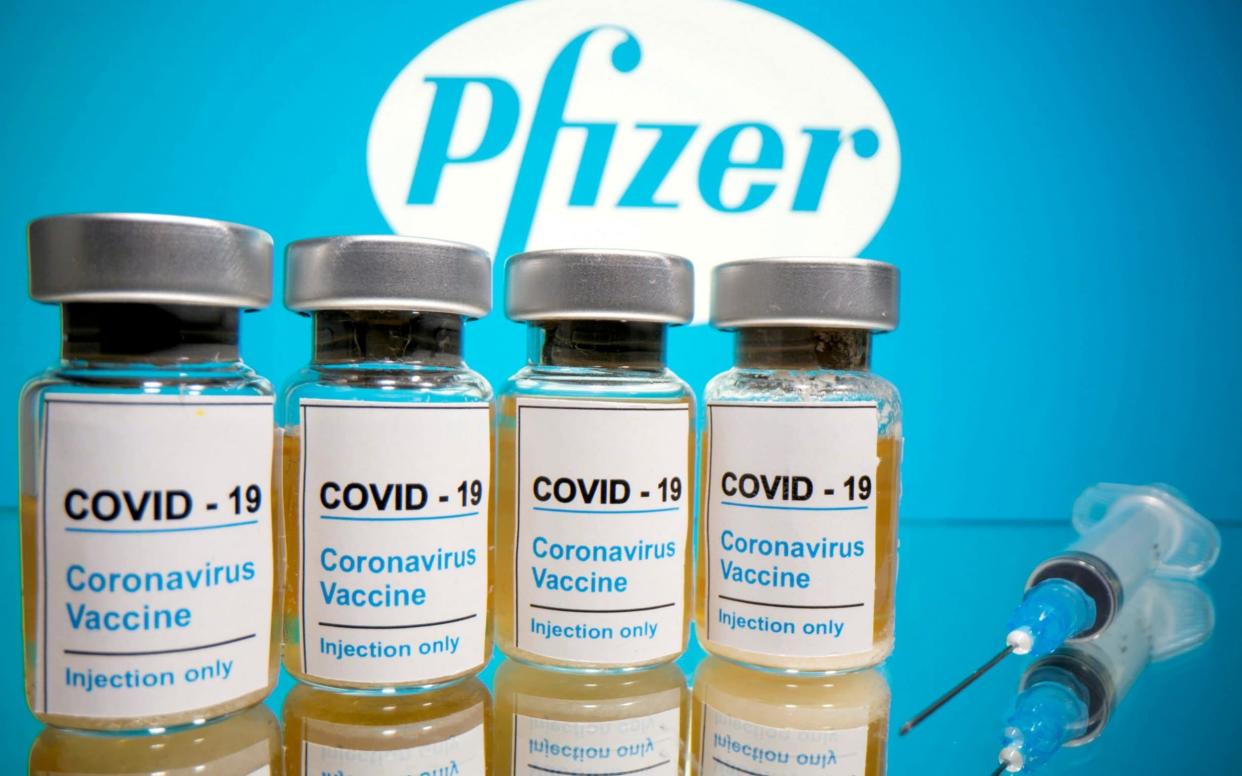How the UK will get Pfizer's Covid vaccine from factory to patient


The first consignment of a Covid-19 vaccine approved for public use could already be in the UK and on its way to distribution hubs.
Doses of Pfizer-BioNTech's jab were being packed for shipment on Wednesday and could arrive as early as Thursday, according to Sean Marett, the chief commercial officer at BioNTech, making the UK the first country in the world to receive the vaccine ready for administering.
But how will the vaccine be transported from factory to patient? And where is it being manufactured?
The jab is being made by the pharmaceutical company in Puurs, a small Belgian town south of Antwerp. Pfizer will use both air and road transport to ship the doses to Britain from Belgium.
The company has previously said it expects to move around 7.6 million doses a day to airports from its sites in Belgium and Kalamazoo, Michigan.
Keeping it cool
The vaccine must be stored at around -70C, but Pfizer has designed an innovative way to transport the vials to overcome this snag.
The doses will be packed into special cool boxes the size of a suitcase, packed with dry ice and GPS trackers. These reusable boxes can safely store up to 5,000 doses of the vaccine for 10 days.
UK border to distribution centres
Once it arrives in the UK, the vaccine will be collected by specialist transport operators and delivered to distribution hubs.
Pfizer said it owns 40 sites and works with 200 suppliers globally to deliver its products. It is expected to utilise these partnerships in the UK to deliver the doses, but it has not yet been confirmed which companies will transport the vaccines.
In the US, it has been reported that DHL, FedEx and UPS will all fly the vaccine to regional distribution centres.
More than 50 vaccine hubs
Matt Hancock, the Health Secretary, said there would be "three modes of delivery" of the vaccine, with hospitals, mass vaccination centres and GPs and pharmacists offering it to those most in need.
He said: "Fifty hospitals across the country are already set up and waiting to receive the vaccine as soon as it's approved, so that can now happen."
The Army has also been ordered to help transform 10 sites into vaccination hubs in just two weeks. The sites include the Nightingale hospital at the London ExCel centre, Epsom racecourse in Surrey, Bristol's Ashton Gate football stadium and the Robertson House conference facility in Stevenage, sources told The Telegraph.
Reports have also suggested storage centres for the vaccine could be set up. However, cold chain experts told The Telegraph that a warehouse would not function at -70C.
How it will be stored?
Once the doses arrive at the hubs, they can be removed from the dry ice box and stored at two to eight C – around the same temperature as a domestic fridge – for up to five days.
On the cold chain challenge, Mr Hancock said: "This is a challenging roll-out, and the NHS in all parts of the UK stands ready to make that happen. They are used to handling vaccines and medicines like this, with these sorts of conditions. It's not easy, but we've got those plans in place."
How it will be administered?
The Pfizer candidate is an "mRNA" vaccine, which means it tricks the body into making antibodies. It will be administered like a normal flu jab by injecting it into the arm, but each patient requires two doses, 21 days apart.
When will I be called to take the vaccine?
Around 10 million doses will be available for use in the UK shortly for priority groups, including healthcare workers.
The joint committee on vaccination and immunisation (JCVI) initially said care home residents and staff should be first in line, followed by those aged over 80 and general health workers. But due to the cold chain logistics it has been suggested it would be impractical to roll the Pfizer vaccine out to care homes, and instead NHS staff will be the first to receive the jab.
Though, the Scottish Health Secretary announced that the Pfizer-BioNTech vaccine will be delivered to care home residents in Scotland within a fortnight (from December 14).
Jeane Freeman said talks held on Thursday December 3 had confirmed the Pfizer/BioNTech vaccine can be transported in an unfrozen state for up to 12 hours, and can also be broken down into smaller packs in "certain conditions".
Ms Freeman told MSPs this makes the vaccine "more useable with minimum wastage for care home residents and our older citizens".
A full list of who will receive the vaccine first is expected to be set out soon.

